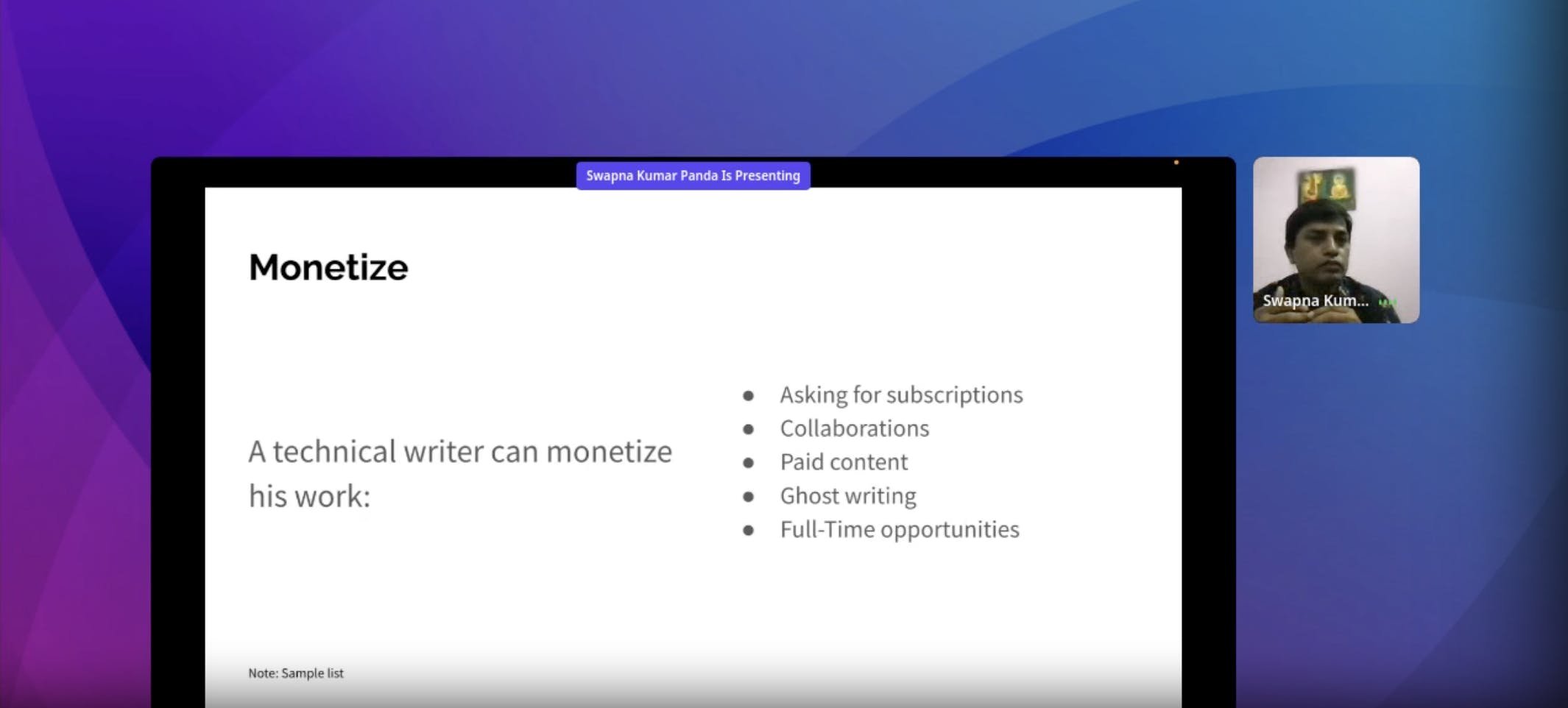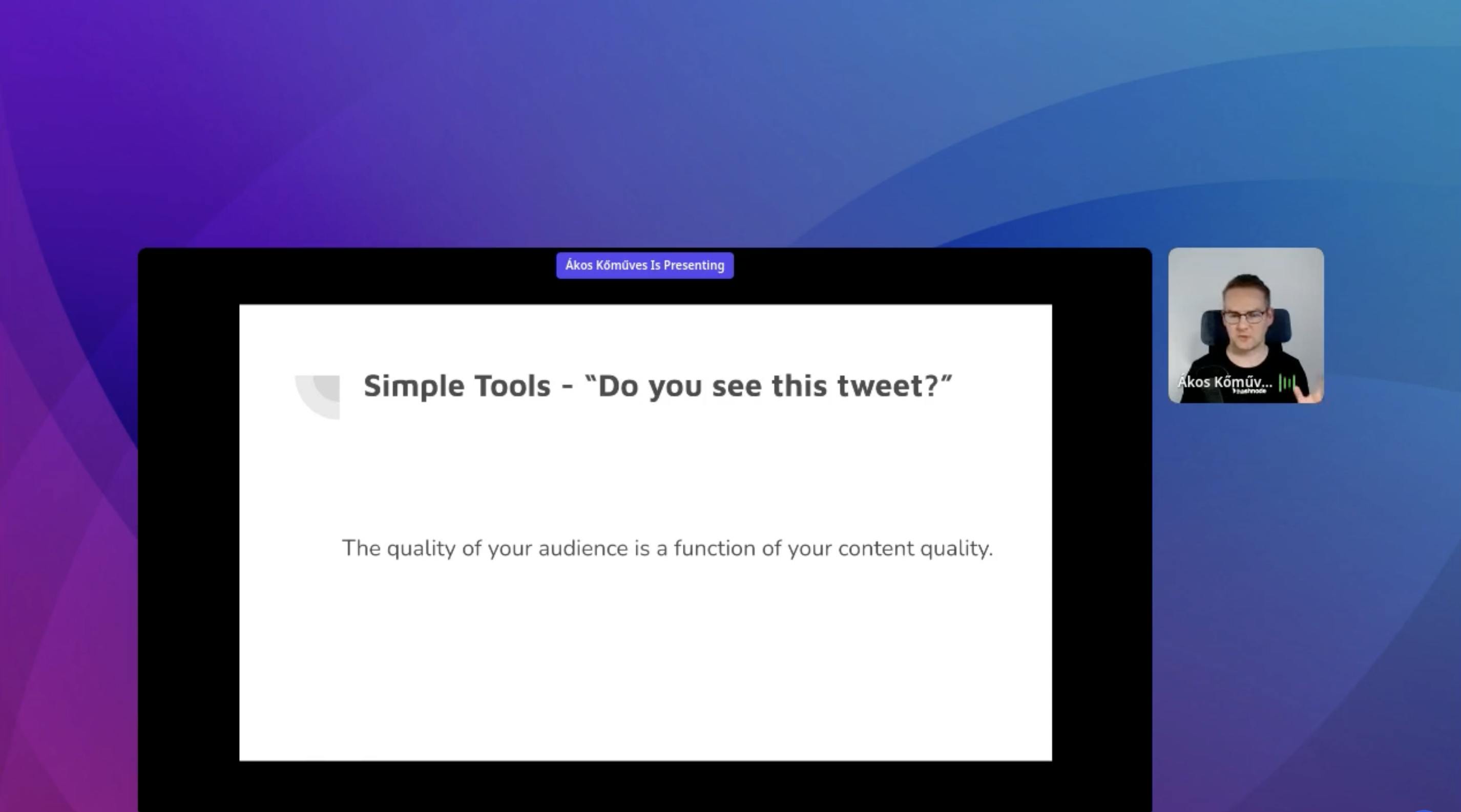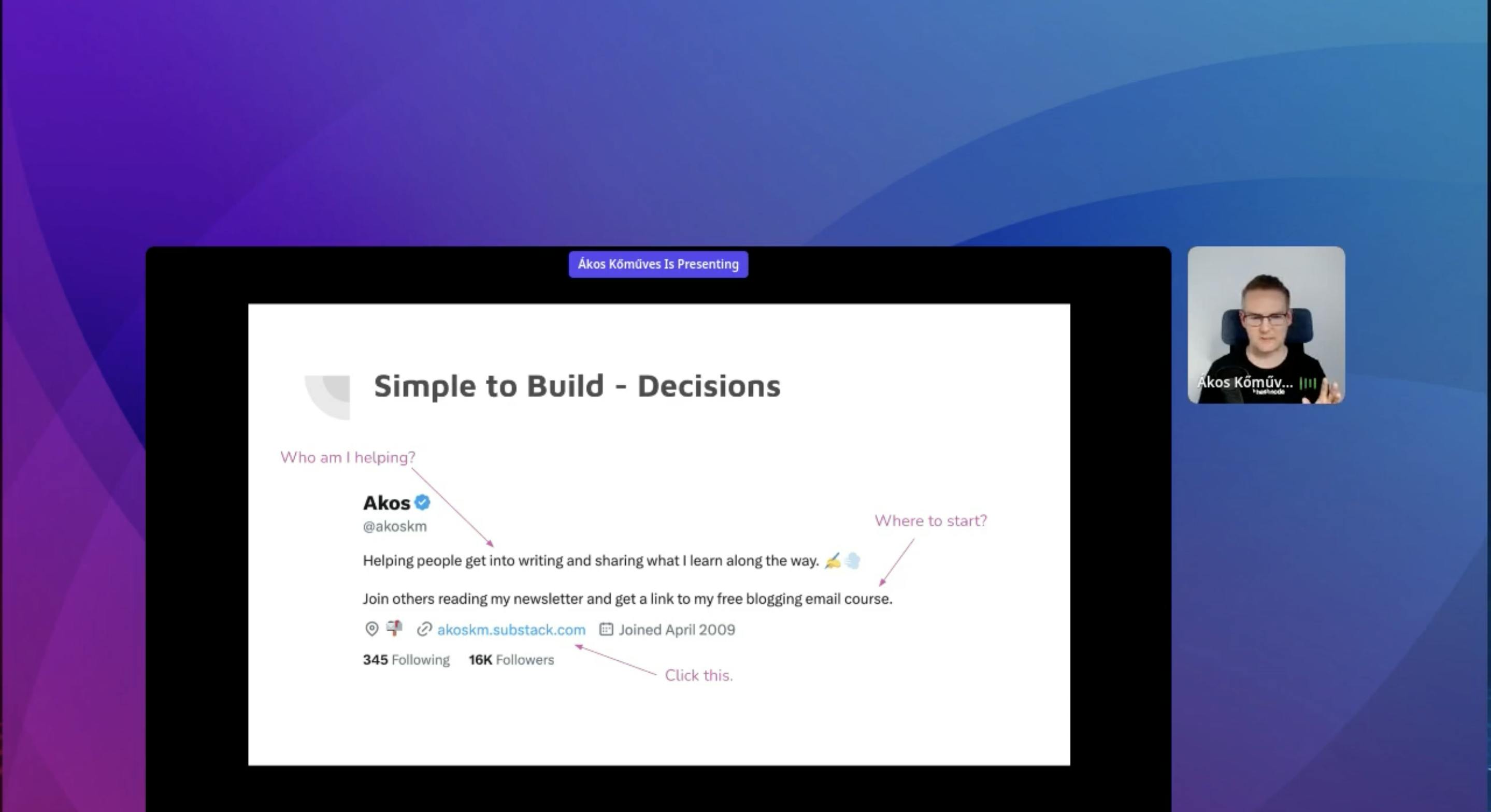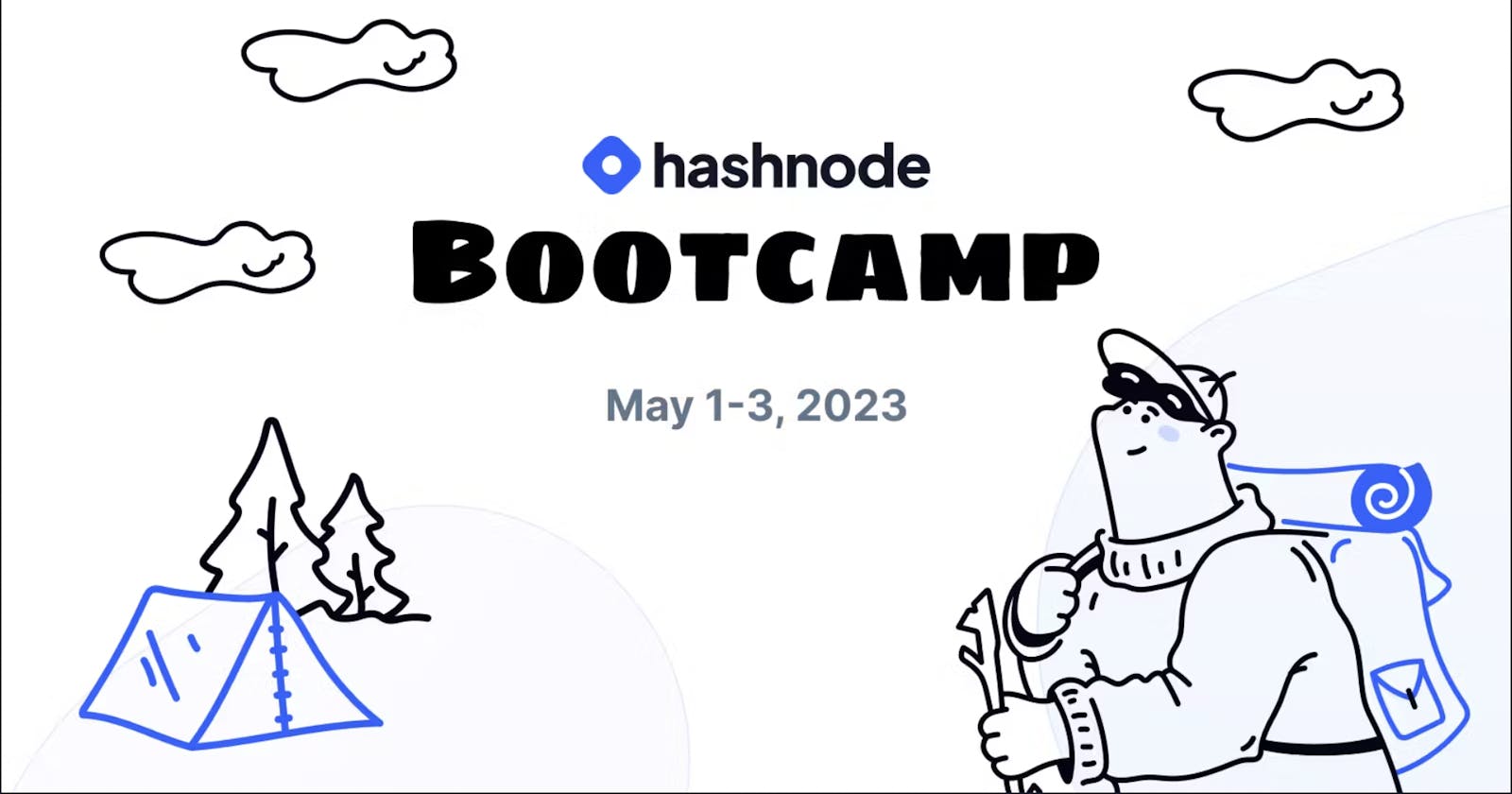I applied to the Hashnode Bootcamp with an open mind as I'd never joined a workshop or seminar before on writing since my uni days. I've also only written a few articles on Hashnode and could use the help honestly. So I applied to the Hashnode Bootcamp to join and hear from some experienced technical writers to gain some useful nuggets of information outside of the norm.
Here were the main takeaways I took from each session which will hopefully help others who are in a similar situation to myself.
Day 1:
Session 1: The Importance of Writing as a Developer
I was looking forward to this session as I'd recently finished Ankur Tyagi's book A Developer's Guide to Blogging which I found insightful and inspiring. As someone who has tried to set up blogs in the past, I was interested to see how technical writing was different and also where there are similarities. I found this quote from Ankur particularly insightful:
Write when inspiration strikes
One of my biggest problems with maintaining a blog in the past has always been being consistent with my writing. Hearing someone who has successfully started and maintained a blog say that you don't need to write every day and that it's fine to only write when you've got an idea was reassuring.
Sitting in front of an empty screen is daunting, particularly when you've got no ideas and feel like you're just going through the motions to say you'd tried to sit down and write that day. I'll take this piece of advice with me going forwards.
Session 2: Leveraging Technical Writing to Land Opportunities and Boost Your Developer Career
This session was headed up by Swapna Kumar Panda and was about how to land opportunities as a technical writer. This isn't something I'd considered before so I was keen to get stuck in and see what opportunities lay out there.
I found this screen the most interesting:

Some of these options I'd never even thought of and will consider in the future. Although I think monetization et al are things that you should only really think about once you have created and maintained a blog for a while.
Day 2:
Session 3: Leveraging Social Media for Monetization
Day 2 had arrived and to kick things off we had a session on using social media for monetization by Nader Dabit . I must admit, when creating blogs in the past I've struggled to use social media to its full potential. Usually, I would simply post links to articles I had done and little else.
This was clearly how not to utilise social media so it was going to be interesting to see what else I should be doing.
Two key points stuck out for me in this one:
Reuse content in multiple formats
This one is something I didn't consider but now I think about it, I see this all over Twitter, blog posts being condensed into threads or key snippets from a blog being used as Tweets. I've always struggled for ideas when it comes to Tweets so this one will come in handy.
If something has already been done, do it differently or better
Unless you're writing about a cutting-edge technology that's only been out for 5 minutes then there's a good chance there's already an article on it somewhere on the internet.
Every time I sit down to write I feel like I'm writing something that's been written about to death already. But the key point from this quote is that only you can put your perspective or what helped you learn said topic. That's what makes your blog posts unique and different from the potentially numerous others.
Session 4: Building Your Personal Brand on Social Media
Next up was a session on building your brand on social media by Kőműves Ákos. Again, this isn't something I've thought about in the past when setting up a blog and there was a ton of good advice with the order of the day to be authentic.

The above slide was an interesting idea, in that the quality of your content will also indicate the quality of your audience. Hence if you use lots of cheap tricks online for your content then you'll likely not attract the quality of audience that you're after.

This was also a super useful slide diving into how to set up your Twitter bio with a few key items:
Say who you are and who you are helping.
Give people somewhere to start with your content.
Give them a call to action.
The 2nd and 3rd items on this list were particularly insightful and something I will incorporate into my profile.
Day 3:
Session 5: Monetizing Expertise & Exploring Opportunities
Day 3 was the final day, it feels like the bootcamp has gone super quickly. The last session was with James Q Quick on Monetizing and exploring opportunities for Technical writing. I've listened to James' podcast compressed.fm a couple of times so was looking forward to this one. Straight off the bat, he came out with one idea, which was to keep all your article ideas on Notion so that when you're struggling for inspiration you have a place to look.
I used to constantly run out of ideas in the past and feel like I could have used this tip back then and will use this going forward.
Another great piece of advice that James gave that seems obvious but is a good way to combat procrastination:
Do something that you're excited about
Writing articles or blogs you don't care about makes writing even harder than it needs to be. James also went on to say that this is a good mantra for anything in life such as career or hobbies.
Conclusion
All in all the bootcamp was great and left me feeling inspired. Also, it's given me some great tools and tips to improve my process. The sessions have been released on Hashnode's own Youtube channel. Check them out and let me know if there are any takeaways I missed out. I'm off to go and write.

